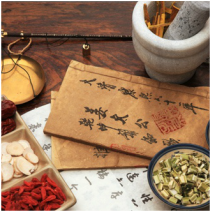WUC Medical School of Traditional Chinese Medicine
Want to become a TCM Herbologist?Traditional Chinese Medication (TCM) Herbology
Why spend more than 5 years from acupuncture specialized school that all you want is to know and learn the TCM theory, applications of herbs and green plants, and maintain healthy and wellness in natural ways? Studying herbalism is like a gift inside a gift. Many individuals study herbalism for the pure enjoyment of learning how to use these valuable green plants we often call weeds. Others study so they can learn how to take care of themselves and their families. Some individuals begin their studies of herbal medicine to start their own businesses, with the intention of selling herbs and body care products to their communities. And then there are those who delve into the complicated world of plant medicine to practice clinical herbalism. |
TCM Herbal Courses |
WUC developed the TCM Herbal Courses from the Traditional Chinese Medication (TCM) Theory, which believes every individuals are all different and therefore should be treated also differently. Based on the TCM philosophy, WUC set a foundation in the TCM Fundamental Course, explore herbs in greater depth in the TCM Herbal Course, prepare students for TCM Differential Diagnosis Course, and delve into complex clinical topics in the Clinical & Practice Herbal Course. Choose the program that is best for you!
Please click the following "Buy Now" button to enroll WUC 2016 TCM Courses. |
TCM FoundationTCM foundation provides the basis of the Chinese medicine system. This course is divided into two TCM foundation I and II. Foundation of TCM I introduces students the classical principles of Yin and Yang, the Five Elements, Zang-Fu, Qi-Blood-Fluids and Channel theories. After completing this course, students will have gained knowledge of basic TCM theories, terminology, energetic and physiology. This course forms the basis for Foundation of TCM II and other TCM courses.
|
TCM HerbologyChinese Herbology, also called Ben Cao (Materia Medica), is divided into two courses. Herbology I introduces the basic theories of Chinese herbal medicine and studies, and single herbs based on their categories, origin, taste, temperature, entering meridians, preparation, delivery methods, therapeutic functions, and contraindications.
Herbology II teaches the remaining single herbs and herbal formula. After completing this course, students would gain a comprehensive knowledge of the basic Chinese herbs, being able to identify all the major single herbs and to describe their origin, category, taste, temperature, entering meridians, preparation and delivery methods, and therapeutic functions and contraindications. |
TCM DiagnosisTCM Differential Diagnosis prepares students for the clinical portion of their education. It is divided into two courses. TCM Differential Diagnosis I teaches the basic skills of history taking, TCM physical examination and assessment using the Four Methods of Examination (inspection, inquiry, auscultation/olfaction, and palpation).
TCM Differential Diagnosis II introduces the various pattern identifications: Eight-Principles pattern identification (Ba-Gang-Bian-Zheng), Qi-Blood-Fluid pattern identification, Zang-Fu pattern identification, Six Channel pattern identification (Liu-Jing-BianZheng), Four Levels pattern identification (Wei-QiYing-Xue-Bian-Zheng), and Triple Burner pattern identification (San-Jiao-Bian-Zheng). Successful students are expected to establish diagnoses using the four diagnostic methods, to differentiate the syndromes and to understand the various associated treatment principles. |




